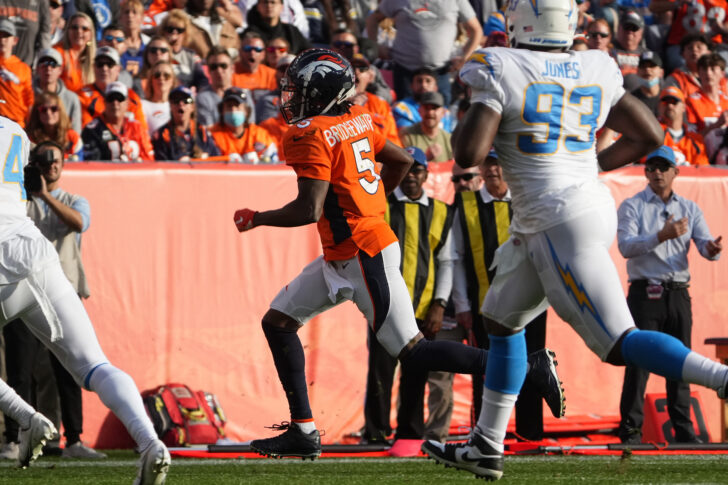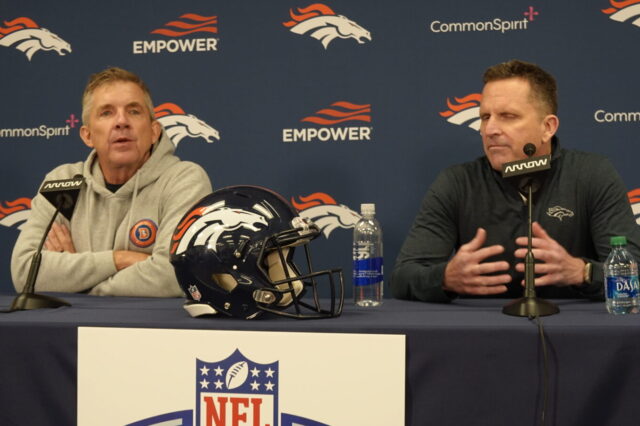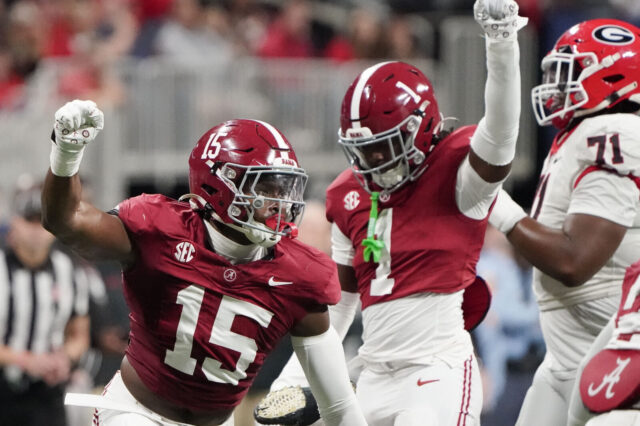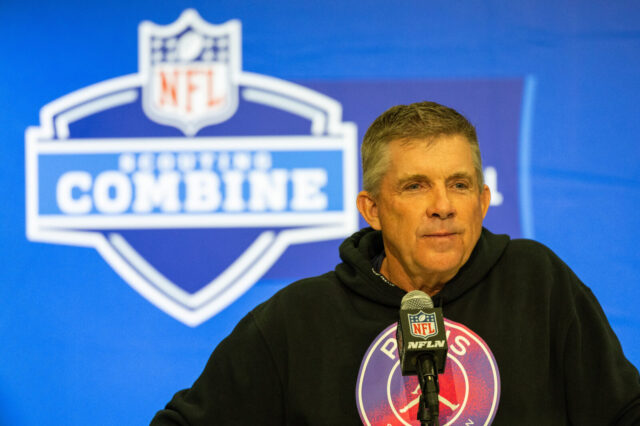Just two weeks ago, Teddy Bridgewater sat in the eye of the media storm. The Denver Broncos quarterback received national backlash following an attempted tackle that never came after he threw an interception.
Through training camp and the first nine weeks of the season, Bridgewater was the Broncos unquestioned leader. And his toughness was never in question, either. However, a self-proclaimed lapse in judgment saw his credibility erode in the public eye.
Bridgewater was faced with making a tackle on Eagles cornerback Darius Slay. Bridgewater’s attempt, or lack thereof, called for may to question his effort. With questions of effort come doubts surrounding his commitment to his players and overall leadership.
A similar issue fell on the doorstep of Peyton Manning in the 2014 playoffs against his former team, the Indianapolis Colts.
When faced with a critical 3rd down conversion, Manning chose not to run for the first down. Instead, the hobbled Hall of Famer threw a contested ball that landed incomplete.
Hearing the boos and challenges to his toughness, Manning rose to the occasion in the playoffs of the following season.
In the AFC Championship game against the rival New England Patriots, Manning dropped back on 3rd and 10. The oft-injured Manning took an opening and went for it. He dove for the first down and Broncos Country loved him for it.
Bridgewater re-establishes himself as a leader the Broncos needed
This past Sunday against the Chargers, Bridgewater displayed the grit that had earned the admiration from his Broncos’ teammates and coaches.
Facing two scenarios calling for Bridgewater to put his body on the line, No. 5 did just that.
Not known for his running ability, Bridgewater ran for the Broncos’ opening touchdown. Bridgewater recognized how much his team needed the score and took it upon himself to provide it. The score set the tone for the game, allowing Denver’s defense to play with a lead.
It also checked off an early box in regards to whether or not Bridgewater would make a “business decision” again.
Teddy Bridgewater takes it in himself.
Broncos on the board first. pic.twitter.com/JHq0qNYeh7
(via @NFL)— NFL on CBS 🏈 (@NFLonCBS) November 28, 2021
Then, came Round 2. Bridgewater suffered a blindside hit from Chargers safety Derwin James and was injured in the second quarter. But Bridgewater returned following a lower leg contusion. With the Broncos clinging to a one-score lead, they needed to finish off a drive and give themselves a cushion, the hobbled Bridgewater was pressured by Joey Bosa off of the right side.
The Broncos’ quarterback stiff-armed the imposing Charger’s pass-rusher into the ground. Then Bridgewater found his tight end Eric Saubert for a much-needed red-zone score.
First career TD for Eric Saubert!
📺: CBS pic.twitter.com/GZ6UDE9UXj
— Denver Broncos (@Broncos) November 28, 2021
Bridgewater faced criticism from the media and several voices in the locker room following the Eagles game. Humbled, he displayed his commitment to his teammates by not going down without a fight against the Chargers.
Bridgewater’s gritty play was essential to the Broncos’ big win against their division foe. His stat line was nothing to write about, Bridgewater’s presence was invaluable.
For Denver to break its 11-game losing streak to Kansas City, its quarterback must continue to steady the ship. The Broncos will no doubt rely on the running game to establish their identity Sunday night. However, Bridgewater has been the straw that stirs the offensive drink.
When he plays well, the Broncos win.
In the Broncos’ six wins this season, Bridgewater has a quarterback rating over 100. In his losses, none of his games have hit that mark per Pro Football Reference.
Denver almost won in Kansas City using their current formula with a quarterback who threw two interceptions. Bridgewater currently owns a 3:1 touchdown to interception ratio. His steadiness and toughness give the Broncos more than a puncher’s chance against the Chiefs.
If Bridgewater continues to play well, Denver can find itself in first place in the division this late in the season for the first time since, 2015.



